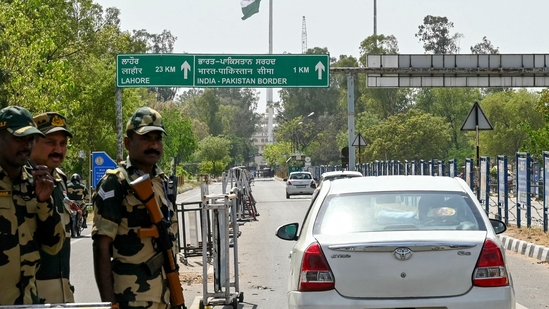India Tightens Border Trade Amid Security Concerns
India is intensifying its crackdown on indirect imports from Pakistan, placing customs and enforcement agencies on high alert to stop at least $500 million worth of Pakistani goods that are being relabelled and rerouted through countries like the UAE, Singapore, Indonesia, and Sri Lanka. This move follows a complete ban on Pakistani imports in response to the Pahalgam terror attack that claimed 26 lives on April 22, 2025.
Pakistani Goods Being Repackaged to Bypass Ban
According to senior officials, Pakistani products such as dry fruits, dates, textiles, soda ash, rock salt, and leather goods are being shipped to third countries and relabelled to bypass Indian trade restrictions. While direct imports have fallen to nearly zero due to a 200% customs duty and MFN status withdrawal post the 2019 Pulwama attack, repackaging in third-party nations has remained a loophole.
Customs and DGFT Respond with Full Prohibition
On May 2, 2025, the Directorate General of Foreign Trade (DGFT) issued a new order banning all direct and indirect Pakistani imports, citing “national security and public policy”. The notification empowers customs to seize goods originating in Pakistan, even if routed through friendly countries. Approval for any exception now requires direct government authorization.
“Terror and Trade Cannot Coexist”
Officials emphasize that the move aims to further economically isolate Pakistan. “The idea is to choke Pakistani exports as Pakistan’s economy is already crippled and vulnerable,” said a senior source. This economic pressure is part of India’s broader response to the Pahalgam attack and Islamabad’s continued support for cross-border terrorism.
Decline in Bilateral Trade Since 2019
India and Pakistan have witnessed a dramatic fall in trade volume over the past five years:
- 🔻 In FY19, India exported $2.07 billion and imported $495 million worth of goods.
- 🔻 By FY24, India’s exports dropped to $1.2 billion, while imports fell to just $3 million.
- 🔻 In FY25 (April–January), Pakistani imports to India were just $0.42 million.
These numbers reflect India’s deliberate trade disengagement policy in response to terrorism, with key sectors like horticulture, cement, salt, and yarn being affected.
Informal Trade Channels Under Scrutiny
Many Pakistani products still reach Indian consumers through informal third-country routes. UAE, Singapore, and Sri Lanka have emerged as key transit points where Pakistani goods are relabelled and exported under a different country of origin. Indian buyers often prefer Pakistani items like rock salt and dry fruits for their quality and cost-effectiveness, making enforcement more complex.
BSF and Customs on Ground Alert
The Border Security Force (BSF) is already on high alert at border posts like Wagah and Attari. Additional scrutiny of maritime cargo is underway at ports in Mumbai, Mundra, and Kochi. Customs officials have been directed to inspect suspect consignments and verify the country of origin documentation thoroughly.
India used to import mineral oil, copper, edible fruits and nuts, salt, sulphur, plastering materials, cotton, raw hides and skins. It exported cotton, chemicals, prepared animal fodder, vegetables, plastic articles, dairy products, pharmaceuticals and sugar to Pakistan.
Pakistanis also purchase Indian goods such as medicines, chemicals, sugar and food items through informal channels via third countries, such as the UAE or Singapore because of quality and cost factors.
Conclusion: Economic Pressure as Counterterrorism Strategy
India’s firm stance reflects a broader doctrine where economic tools are used to counter terrorism. By closing every trade loophole, New Delhi is making it clear that terror and trade cannot coexist. As surveillance tightens and illegal channels dry up, Pakistan will feel increased economic pressure to reconsider its policies.
For more updates on Indo-Pak trade dynamics, national security strategy, and policy enforcement, stay connected with our blog.


